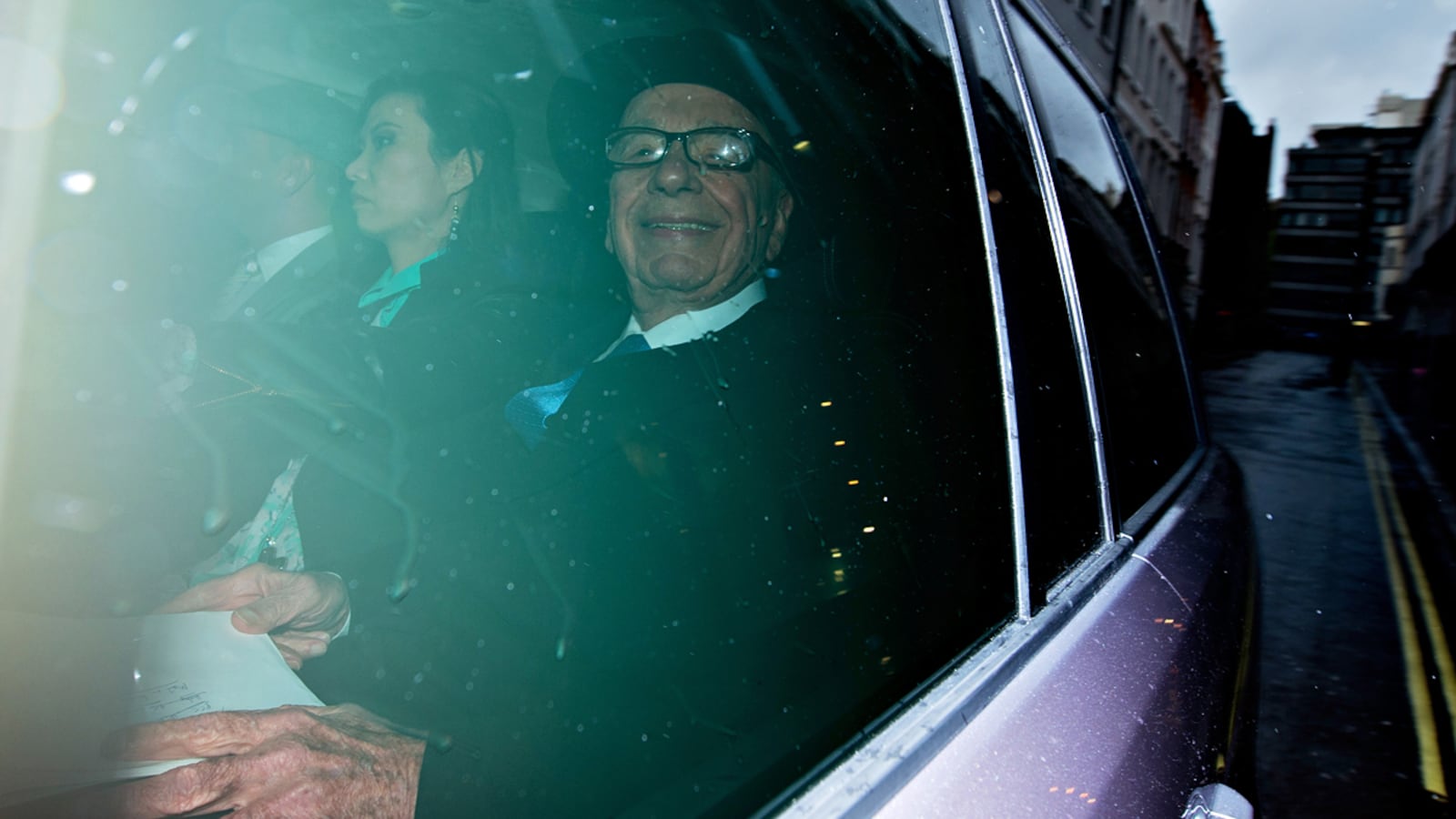As Rupert Murdoch rose to take his oath at the Leveson Inquiry on Wednesday, heads were already rolling in Whitehall as a result of a trove of emails deposited by his company.
Adam Smith, the senior political advisor to the Culture Minister Jeremy Hunt, resigned after News Corp. handed the Leveson Inquiry a cache of emails from News Corp’s European head of affairs, Frederic Michel, which detail confidential information passed by Smith to the company during their contentious $16 billion bid for BSkyB.
The 163 emails seem to demonstrate an intense and cozy relationship between the office of the culture minister and one of James Murdoch’s closest aides. Many of the emails contain advance notice of parliamentary statements, internal arguments with the regulator and other officials, which were both market sensitive, and highly compromising for the culture minister, who was supposed to be overseeing the bid in an impartial "quasi-judicial" process. Labour accused the Conservative minister instead of being a "cheerleader" for News Corp. and that throwing his special adviswr under the bus in order to save his career was in breach of the ministerial code.

New allegations are surfacing in London, which detail Hunt’s five days in the United States meeting News Corp. executives around the time its British newspapers began to support David Cameron. More comically—but perhaps just as damaging—a Daily Telegraph reporter, Ian Martin, relates an incident, when Jeremy Hunt apparently hid behind a tree to avoid being seen while sneaking to a dinner with James Murdoch.
All these revelations at Westminster somewhat contradicted the Wednesday testimony of Rupert Murdoch who appeared a mile or so away at the Royal Courts of Justice. As the inquiry explored more than 30 years of the media mogul’s dominance of Fleet Street, Rupert’s recurrent theme was that he never used political pressure to achieve any commercial ends.
“It’s a complete myth that I used the influence of the Sun, or supposed political power, to get influence,” he reiterated again and again, complaining about the allegations: “they just aren’t true!”
This current part of the Leveson Inquiry is looking at the connections between the press and politicians, and it’s already become one of the stormiest sessions of all. In a raucous session of prime minister’s questions, David Cameron had to answer yet more allegations of secret dinners with the Murdochs and "cosying up to News. Corp." This was followed by an equally noisy barracking of his culture minister as Jeremy Hunt made a statement, claiming that no one should jump on the "political bandwagon" and he deserves his time in court in front of Lord Justice Leveson to state his case.
Hunt is a close ally of the prime minister, and David Cameron has given him his backing. However, in such a fast-moving environment, with a slew of new revelations about the culture minister’s proximity to the Murdoch empire, Hunt’s survival as a minister is still up in the air. If he falls, then Cameron has lost an important ally and firewall.
Noisy events a mile away in Westminster made Rupert’s protestations that he never interfered in British politics sound—at best—at little disingenuous. Though Murdoch said no one should "take my tweets seriously," the media mogul has been gunning for David Cameron over the last two months on Twitter.
Apart from a few pot shots at old enemies, Murdoch generally kept his counsel well, though the issue of his back-door access to politicians won’t go away. There was an amusing aside about Rupert’s famous visit to No. 10, through the back door, within days of David Cameron becoming prime minister: “There are reasons for that,” he explained “They don’t want me to be photographed going through the front door. And there’s a short cut to my apartment.”
It’s exactly this privileged access of the Murdoch empire which could still see the Culture Minister Jeremy Hunt resign, and spell more trouble for the Conservative-led coalition. When Rupert claimed that the timing of the BSkyB bid with Cameron entering No. 10 Downing Street was a pure "coincidence," he directly contradicts what James said in evidence yesterday.
Murdoch’s interrogation ended early, as the 81-year-old mogul looked tired after four hours questioning, but the story isn’t over—probably to Murdoch’s chagrin. He allegedly ended the morning session by remarking to his aides “Let’s get this fucking thing over today.”





